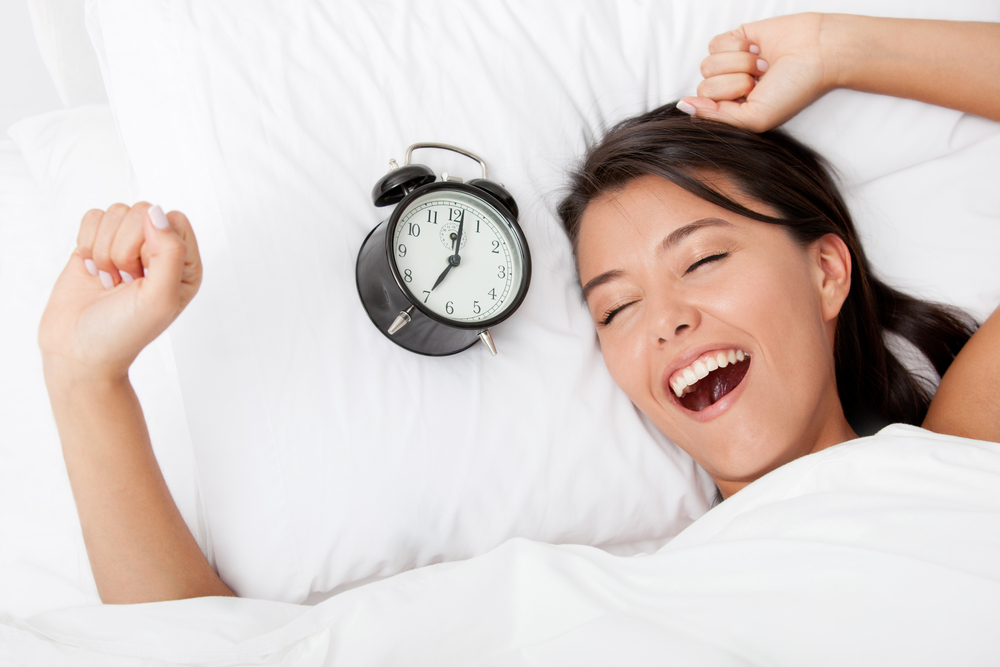A good night’s sleep is extremely important for both your physical as well as mental health. As a matter of fact, it has now been conclusively proven that lack of sleep can harm our ability to work the next day, to a dangerous degree. Our minds and bodies are both too tired and jaded to take on the day’s problems. If this situation is not rectified soon enough, it might even do irreversible damage to your physical well-being and mental health. However, it does not have to be this way at all. Sleep can improve your mental health. Not if you can figure out how to improve your sleep on a consistent basis. Let us see how:
- Minimize all light and eliminate noise as much as you can
Light and sound are two very important environmental factors. Taken together they can adversely affect the overall quality and quantity of your sleeping hours. It is very simple really. Darkness all around us automatically causes our brain to release a certain hormone known as melatonin which makes us feel sleepy. This is why it is very important to switch off all the lights before you hit the sack. Even the small beeping light on your laptop or pc or the light getting through the chinks in your curtain can make it difficult to go to sleep. If you cannot eliminate these sources of ambient light, you should try wearing eyeshades.
Much the same principle applies to noise as well. You should try to sleep in a noiseless room since sudden loud noises can wake you from sleep. Apart from that, noisy rooms make for a light and disturbed sleep. So, even if you are getting your 8 hours, it might not be as refreshing as you would want it to be. You will lose your productivity and won’t be able to maintain your edge.
- Make a sleep schedule and stick to it!
Take 8 hours out of your schedule, for sleeping. Most people can get by with 7 hours, but 8 should be the goal. Always try to go to bed at the same time and get up the next morning at the same time. It is important to remember that being consistent will automatically reinforce all of your body’s own natural sleep-wake patterns and cycles. If you fail to go to sleep within half an hour, it is better to get out of bed and do something else. You can read a book or listen to music or even exercise a little. You should only go back to bed when you feel a bit tired. Repeat this cycle as long as it is necessary.
- Get as comfortable as possible
Since you will be spending a substantial part of your life in bed, it makes sense to get one as comfortable as possible. A lumpy bed can give you back pain and other problems. Moreover, it is difficult to sleep properly on an uncomfortable bed.
- Manage stress properly
How you try to handle stress can also play a key role in your intrinsic ability to relax and nod off and stay asleep. While a bit of stress exists in all of our collective lives, once it starts turning into anxiety you may find it disrupting your sleep patterns. If you end up tossing this way and that all night long, then this means that your mind is keeping you up when you should be sleeping. It would be a great idea to try to practice proper stress management techniques for at least a few minutes before you decide to go to bed. You can do a bit of yoga, meditation, or even keep a gratitude journal to keep your stress at bay.
- Use gummy bears
Many people don’t realize how useful gummy vitamins are when it comes to relaxing the body and regulating its sleep hormones. This in turn leads to elevated feel-good chemicals which then result in improved sleep. All of this is thanks to sugar-free gummy vitamins.
- Conclusion
Sleep is pivotal to a healthy life. If you take gummy bear vitamins and maintain a consistent schedule, you will be able to regulate your sleep patterns easily enough. Good Night!
Alaska Sleep Clinic’s four sleep labs are all accredited by the American Academy of Sleep Medicine. Women are under-diagnosed for sleep apnea and Alaska Sleep Clinic is hoping to change that through education. Click the link below and find out how ASC treats each sleep apnea case on an individual basis.











